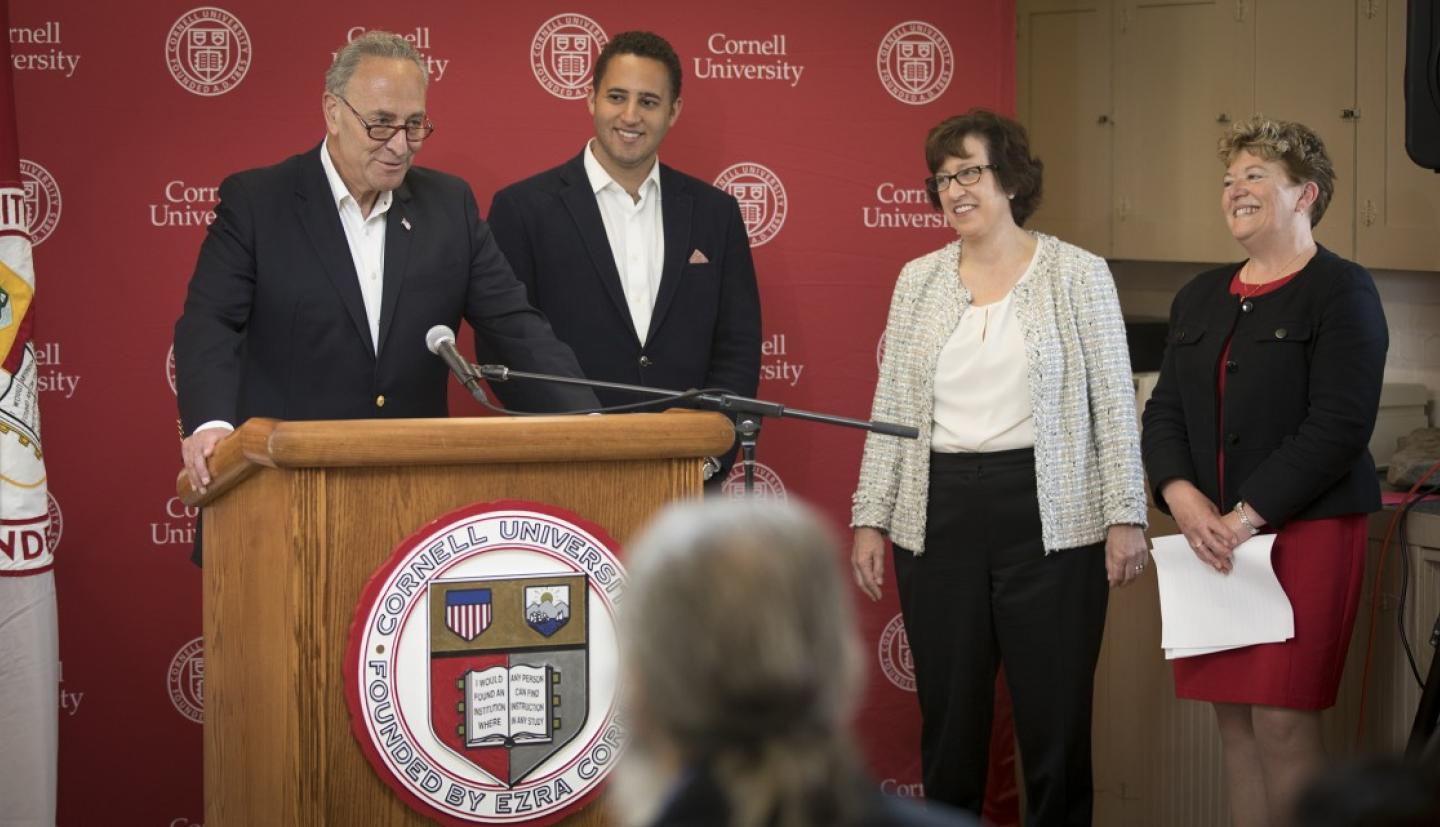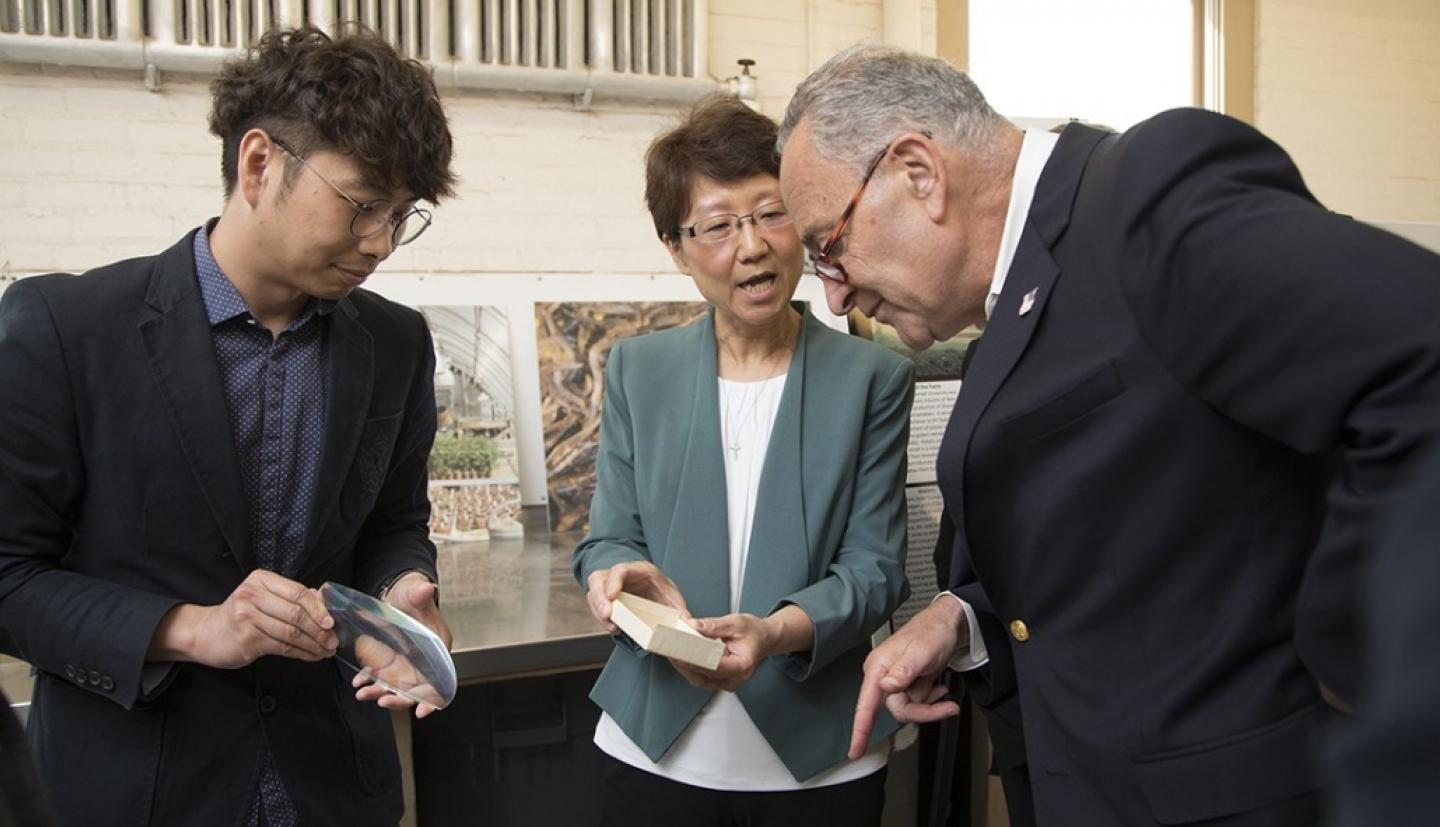“Our great potato crop, so economically important to New York and to the country, … is at risk,” said U.S. Sen. Charles E. Schumer (D-NY) in a visit to campus Sept. 1.
To help alleviate that risk, Schumer announced a commitment of $400,000 in federal funds to the Federal Golden Nematode Laboratory at Cornell. The funds, administered through the U.S. Department of Agriculture (USDA) Agricultural Research Service (ARS), will pay for upgrades to facilities and equipment.
The 60-year-old lab, which is used by USDA-ARS and Cornell scientists to control potentially devastating golden nematodes and pale cyst nematodes, is “the front line of defense … against this terrible infestation,” said Schumer, who is the Senate minority leader.
Without intervention, the pests pose a threat to New York’s $65 million potato industry and potato crops across the country. The microscopic worms feed on roots of potatoes and other crops, dramatically reducing yields. The lab, a partnership between the USDA and the College of Agriculture and Life Sciences (CALS), maintains a federal quarantine, which protects New York’s potato industry, while also making it safe for New York farmers to ship other vegetables, including soybeans and such root crops as carrots, turnips and beets.
“The Federal Golden Nematode Laboratory here at Cornell University is the only research program in North America with expertise in the biology, in the resistance breeding and the management of the potato cyst nematode,” said Kathryn J. Boor, the Ronald P. Lynch Dean of CALS
“Through vigilant monitoring, through soil testing and through research to develop resistant potato cultivars along with appropriate on-farm management strategies, this program has successfully quarantined the golden nematode, a pest that has been here in the United States for quite a long time,” Boor said.
What kind of impact are we having in New York? @SenSchumer explains the role #CornellCALS plays in making NY agriculture grow. pic.twitter.com/bpSh9xWyFk
— Cornell CALS (@CornellCALS) September 1, 2017
Schumer said the potato industry is a crucial sector of the upstate New York economy, with over 20,000 acres of cropland on more than 1,200 farms.
New York state approved $1.2 million last year to renovate and modernize the Federal Golden Nematode Laboratory, which helps researchers and farmers stay ahead of nematodes that constantly adapt to control measures. The lab also collaborates with Cornell potato breeders to develop high-quality resistant potato varieties. The facility provides USDA-ARS and Cornell researchers with a biosafe area to address other nematode challenges, such as the soybean cyst that infects the roots of soybeans.
Said Cornell President Martha E. Pollack: “Sen. Schumer fights every day for us, for our funding at the big research agencies at the [National Institutes of Health], [National Science Foundation] and so on, and also … advocating for a lab like this – a small but incredibly important lab – and for that we are very, very grateful.”






